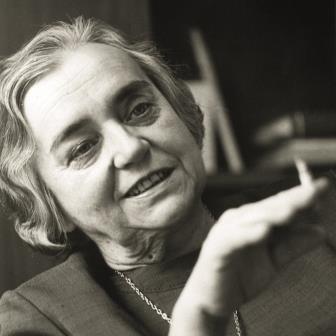Prelude to the unheard-of: Poems by Christine Busta
by Christine Busta
translated by Maria Fink
Christine Busta (1915–1987) was born in Vienna, Austria, a year after the beginning of World War I. She was raised by her mother, who lost her job when Busta was still a teenager. Faced with financial hardship in the difficult interwar period, the young Busta supported the family by tutoring students. After graduating from high school, she studied German and English at the University of Vienna until a lack of financial resources and health issues forced her to stop. During World War II she taught at a vocational school in Vienna, marrying the musician Maximilian Dimt in 1940. They had only been married for two years when Dimt was drafted to serve in the war and went missing in Russia shortly afterward, never to return. After the war, Busta worked as a translator and ran a hotel for the British occupying forces. In 1946, she published her first poem in the weekly paper Die Furche. One year later, she won her first literary prize and started to gain visibility as a poet. In 1950, she began working for the Vienna city library and published her first book of poetry, Jahr um Jahr (Year After Year). Throughout her successful career as a poet, she continued working as a librarian.
Busta published eleven books of poetry, among them two written for children, and won numerous literary awards during her lifetime. And yet, despite my many years of studying German literature (Busta and I share the same country of origin), I hadn’t come across her work until I skimmed through an anthology of Austrian poetry. There they were: nine poems full of vivid imagery, playful word creations often depicting nature and its creatures, personal reflections of loved ones, prayer-like lines, aphorisms, short and long poems. These were poems that were lyrical and highly symbolic, seemingly straightforward and yet at times bafflingly complex.
The four poems published here are among my favorites from Busta’s large body of work. They are united by a thematic focus on nature, its destructive force, the contemplation it elicits, and the comfort humans find in it. For me, translating is always a balancing act between too much and too little, especially in poetry. In my translations, I aim to do justice to the original text by paying close attention to sound patterns, rhythm, and peculiarities of word choice. At the same time, I also allow myself to let go of the painstaking search for equivalence for the sake of creating a new poem in its own right in a new language.
-Maria Fink
See Original Language See Translation
The Whole Truth
We see
the blackbirds
voraciously shredding
the yellow crocus.
We hear
their black throats
descend
in the form of light.
Ritornello at Bedtime
What made me oh so glad today?
The bowl of primroses on the windowsill;
a lamp filled with spring in the face of night.
On the Mountain
The heart of the mountains is old.
It runs on a different time.
Every few millennia
it beats. The silence in between
is the great expectation.
We fell into the break,
the prelude to the unheard-of.
Who of us will hear
and bear it: the next beat?
Discovery
Say
grassland.
Say it slowly.
You are reciting
a perfect
poem.
Die ganze Wahrheit
Wir haben gesehen,
wie die Amseln
gierig den gelben Krokus
zerfetzten.
Wir hören
die schwarzen Kehlen
niederkommen
als Licht.
Ritornell vor dem Einschlafen
Was hat mich heut so froh gemacht?
Die Schale mit Primeln, sie steht am Fenster;
eine Lampe voll Frühling vorm Antlitz der Nacht.
Auf dem Berg
Das Herz der Gebirge ist alt,
es hat eine andere Zeit.
Alle Jahrtausende einmal
schlägt es. Die Stille dazwischen
ist die große Erwartung.
Wir sind in die Pause geraten,
den Auftakt zum Unerhörten.
Wer von uns wohl vernimmt
und erträgt ihn: den nächsten Schlag?
Entdeckung
Sag:
Grasnarbe.
Sag es langsam.
Du sprichst
ein vollkommenes
Gedicht.
German poems originally published by Otto Müller Verlag Salzburg.
Published on December 12, 2019

